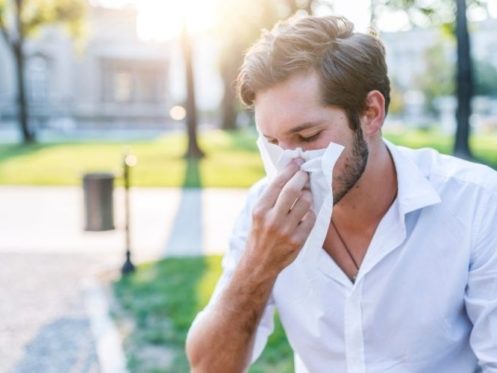Exploring the Best HVAC Filters for Allergies at Bay
The sniffles of spring are decidedly one of the worst side effects of all those spring flowers. Between blossoming petals, cotton-covered trees, and other pollen-producing flora, spring quickly becomes miserable for anyone prone to allergies. The good news is that the home can become a safe oasis, free from allergens and side effects if the right filter is installed in the air conditioner and heater. Unsure of what filter is best for the house? Keep reading to discover the pros and cons of three popular filter solutions that work in any home HVAC system.
A Note On MERV Ratings
It’s necessary to understand the MERV rating before exploring filter options. MERV stands for Minimum Efficiency Reporting Values, and a filter’s MERV rating indicates how well the filter captures larger particles in the air.
MERV is rated on a scale of 1-20, with 1 being the poorest level of efficiency and 20 being the best. Every filter on the market receives a MERV rating.
The Economical Solution: Fibreglass Filters
Fiberglass filters are the cheapest, most economical filter on the market. They consist of spun glass made into an inch thick barrier that captures large particles in the air.
The Pros
Fiberglass filters are affordable, with the average cost ranging around $3. They are easy to install and work with most HVAC systems.
The Cons
Fiberglass filters have poor MERV ratings, typically resting between a 1 and 4. Fiberglass filters are throw-away options; they require replacement every 30 days or sooner depending on if a home has pets, smokers, or a large family living inside. If left unchanged, the airflow and temperature will suffer, as fiberglass filters easily clog stop airflow if dirty.
The Eco-Friendly Solution: Washable/ Reusable Filters
Eco-friendly solutions do exist for HVAC filters. Washable and reusable filters have flooded the market, and they are extremely popular for eco-conscious homeowners.
The Pros
Washable HVAC filters replace up to 60 fiberglass filters a year. They typically do not need replacing for at least a year, making them far more environmentally friendly than their throw-away counterpart. Additionally, while washable filters may cost more than fiberglass at first, they save money over the year.
The Cons
Similar to fiberglass filters, washable filters only have a MERV rating between 1 and 4. They also require regular washing and must be completely dry before use, or they can produce mold. Generally, two washable filters are needed for uninterrupted service, allowing one to be washed and dried while the other works in the HVAC system.
The All-Around Best Solution: HEPA Filters
HEPA filters are the gold star among HVAC filters. The United States Environmental Protection Agency recommends HEPA filters for HVAC systems because they eliminate up to 99.97% of .03 micron particles in the air, making them 17 or higher on the MERV scale.
The Pros
HEPA filters remove more allergens, dust, and pollutants from the air than most other filter types. They’re so good at air purification that they remove mold spores, bacteria, dust mites, and allergens that other filters can’t. For allergy-prone homes, HEPA filters are the recommended go-to.
The Cons
HEPA filters cost more than other filters, and they usually aren’t “one-size-fits-all.” Additionally, HEPA filters don’t trap gas, fumes, or odors, so additional filtration methods may be necessary for homes that struggle with those pollutants.
Homeowners with questions regarding the best filter for their home environment can get help by calling a qualified HVAC specialist.
About Champion Comfort Experts
When choosing to work with Champion Comfort Experts, homeowners should choose honesty and upfront work with exceptional results. Their technicians never sneak in hidden fees or surprise bills; every project received upfront, flat-rate pricing. Their company is proud to serve the HVAC needs of their Flat Rock, NC community with the latest HVAC technology. Call now for AC maintenance.





